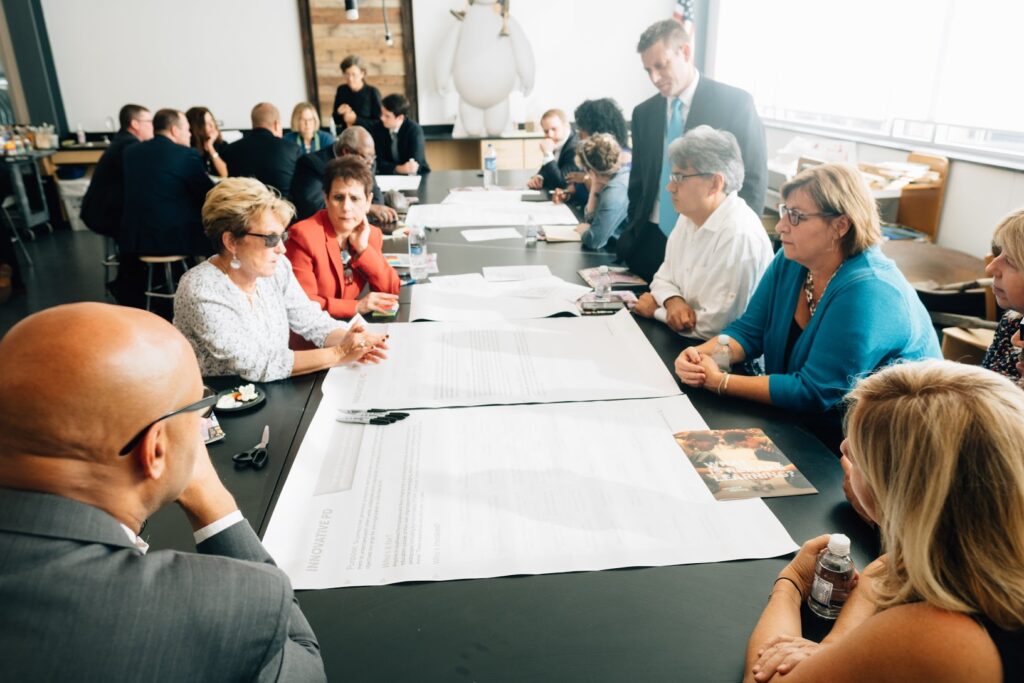Have you found yourself confused by all the new terminology being used to describe learning? Us too. That’s why we embarked on a project to distill the key elements of some of the new learning frameworks we’ve been reading about. Whether you’re an educator looking to demystify some of the buzzwords you keep hearing, or you’re entering the ed-tech startup scene, this series will help you speak the language of education innovation.
Over the next couple of weeks, we’ll dig into a few of the learning frameworks we’ve seen adopted by educators in the Remake Learning Network, as well as a few others that we’re just beginning to learn about:
- The P21 Framework prepares students for college and careers with collaborative, creative, and communication skills.
- Connected Learning facilitates the creation of learning environments where students can explore their interests around peer groups and mentors.
- Deeper Learning encourages teachers to create project- and problem-based learning experiences with technology to prepare students for college and the workforce.
Though each framework uses different interventions, they all share the goals of improving learning outcomes, enhancing student engagement, and better preparing young people for today’s world. The series will cover these frameworks in more detail and give examples of their implementation in the Pittsburgh region.
We’ll be rolling out a three part series of blog posts detailing each of these frameworks over the coming weeks. But before we get started, we thought it might be helpful to dispatch with a few key definitions of words and phrases you’ll see over and over again.
New methods of teaching and learning require new vocabulary. Many of these words appear frequently in discussions about education, and many of today’s frameworks focus on these ideas. Below, you can find a list of buzzwords that are used often when describing these common learning frameworks.
- Framework – A way of organizing a complex concept for better understanding and structuring its key elements for better implementation.
- Competency – The ability to do a task effectively by using skills and applying knowledge.
- 21st Century Skills – A catch-all term for describing the diverse sets of skills thought to new or particular to learners growing up in the early 21st Century, including mastery of digital technology, capacity for creativity and critical thinking, effective group communication and collaboration, and more.
- Blended Learning – The combined use of traditional classroom instruction by a teacher and technology to deliver learning content to students.
- Project- and Problem-based learning – Giving students an extended period of time to learn by working to solve a complex challenge, often collaboratively.
- College and Career Readiness – A student’s preparedness to gain entry to and succeed in post-secondary education or entry-level employment.
- Inquiry-Based Learning – A method of instruction that emphasizes the asking of questions and guiding students through a process of discussion, exploration, and reflection.
- Technological Pedagogical Content Knowledge – The combined mastery of technological tools and educational content necessary for an educator to effectively deliver technology-enhanced instruction.
- Social-Emotional Learning – The process through which learners develop mindsets and skills to manage their emotions, relationships, decision-making, and goals.
Further Reading: Education Reimagined has been doing a long-running series in their online magazine comparing education today and education in the future. It covers some of these ideas while translating the vocabulary of yesterday’s education frameworks to more modern terms, and is worth a read for more information.
